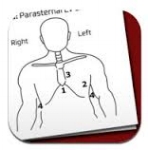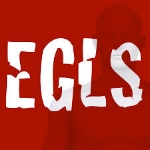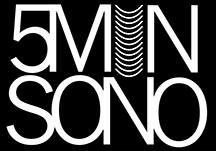RCEM Accreditation
Bedside ultrasound scanning became a mandatory element of ED training in the UK in 2010. It consists of core (formerly level 1) and advanced (level 2) modalities. Core training is outlined by the college in this document and on the Ultrasound section of the RCEM Website.
7 Steps to ultrasound greatness
Step 1 Attendance on a level 1 course.
These cover the core physics basics of ultrasound and application for daily use. They should also include practical sessions for the four core applications:
- Focused Assessment with Sonography in Trauma (FAST)
- Assessment of the Abdominal Aorta for Aneurysm (AAA)
- Focused Echocardiography in Life Support (ELS)
- Ultrasound Guided Vascular Access
There are several running in the UK and a list of these courses can be found here.
Step 2. Completion of RCEM eLearning modules.
There are 6 online modules available on the RCEM learning website that cover ultrasound physics and cases covering the four core skills. They supply a certificate at the end and take about 10-20mins each to complete. For core sign off you will need to produce evidence of their completion.
- Ultrasound: Skills of ultrasound guided vascular access
- Ultrasound: Skills of carrying out Focused assessment sonography in trauma
- Ultrasound: Skills of carrying out abdominal aortic aneurysm assessment (AAA)
- Ultrasound: Physics and basic equipment settings
- Ultrasound: Indications for ultrasound
- Ultrasound: Image acquisition
- Ultrasound: Echo in Life Support
Step 3. Supervision
After attending a course, go back to your department and scope out who the departmental lead for ultrasound is. Every department should have a lead who is core trained and able to supervise/ discuss scans. Agree a plan of how you should start your training in the department in terms of being observed/ reviewing images.
Each department should have a policy of documentation of ultrasound findings in the patient’s notes and how to act upon findings- bear in mind you may encounter incidental findings when you scan patients. It is important if you are not signed off as competent you should not be acting independently. If you do scan patients and are unsure of the findings, you need to find someone who is trained to discuss the findings especially prior to discharge from the ED.
Step 4. Create a Portfolio
A logbook of evidence of scans will be required, alongside 10 reflective case studies for sign off. There are no apps available yet (that we are aware of, but very keen to know about!) that allow you to log cases and images in the same place. We would recommend that trainees use the Eportfolio reflective notes section to write up cases. They can be printed off and linked to other WBA/curriculum sections, minimising replication of work.
How you keep a logbook of cases is up to yourself, the easiest method is by using excel/numbers. Ideally, keeping picture evidence of scans performed as either printouts or electronic copies will demonstrate your skills. Ensure when you start keeping a log you know how to save images with your local equipment otherwise it can prove time consuming and difficult putting together cases to write up when required. If you are saving images for teaching or taking off the machine’s hard drive then make sure you know how to anonymise images.
The more people you scan the better. Get to know what’s normal and how to adjust settings to get better images. The college used to ask for 10 AAA/FAST/Vascular access as a minimum which is a good place to start. You should also audit your own practice. If you perform an aorta scan and the patient goes to have a CT- compare your findings to the gold standard to see if there are areas of improvement required.
Requirements:
- 10 FAST – >=2 positive
- 10 AAA – >= 2 positive
- 5 Vascular access
- 10 ELS including 5 cardiac arrest
Step 5. Write up cases
10 cases including pictures should be presented at the finishing school.
Step 6. Sign off
Attendance at a sign off day regionally or a finishing school to show off your cases and ultrasound prowess is the final step for sign off as core competent. They involve an OSCE style assessment by accredited assessors and review of cases. It is mandatory for CCT of ED training.
Organised sign off days in the West of Scotland are organised by Dr Jonny Gordon at the QEUH. He is also happy organise a visit to the department you work in, to assess on your local machine if you email him in advance.
There are numerous finishing schools arranged in England by companies including Infomed, EMUSS & NEMUS. These can be up to £500 and are unlikely to be covered by your study budget so if you are organised do it for free!
Step 7. Continued recording of cases/ further training.
In accordance with revalidation/ continued professional development everyone should keep up a logbook of scans to demonstrate up to date skills. Echo in life support training is likely to be incorporated into ALS training in the future, but the FEEL course is worth attending for further training.
If point of care ultrasound (POCUS) really excites you, you can do further modules including thoracic, advanced echo, MSK, hepatobiliary and renal training in accordance with advanced training. There are PGCert/masters courses that you can do and further information will be available in the advanced ultrasound section: coming soon....
Resources
These are a some resources we think you'll find useful, keep us updated if you find anything we should be telling the world about!










